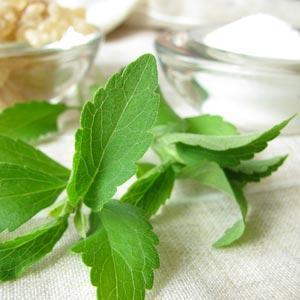 Sugar is finally getting some media attention as the ultimate diet demon. All dieticians now seem to agree that there is nothing good about refined sugar, and everyone would be better off cutting it out completely.
Sugar is finally getting some media attention as the ultimate diet demon. All dieticians now seem to agree that there is nothing good about refined sugar, and everyone would be better off cutting it out completely.
Low-carb dieters have, of course, known this for a long time. White sugar is pure carb, and there is no place for it whatsoever in a low-carb diet. Fortunately, giving up sugar doesn’t mean you will never eat anything sweet again.
Sugar substitutes and sweeteners are now widely available, both online and in the High Street supermarkets, shops and cafes.
With dozens of different products out there, I often get asked which ones are best for a low-carb diet. Below is a quick overview of popular products, as well as my personal choices, based on seven years of experience as a low-carb dieter and baker.
Sugar substitutes – quick overview
Generally speaking, all sugar substitutes can be divided into three big groups: artificial sweeteners, sugar alcohols and plant extracts.
Artificial sweeteners
These substances are artificially synthesised chemical compounds, usually much sweeter than sugar. Individual properties vary between products. Carb counts are typically zero or close to zero, when taken in pure form.
The most popular products in this group include:
- aspartame (brand names NutraSweet, Equal)
- saccharine (Sweet’N’Low)
- sucralose (Splenda, EZ-Sweetz)
- acesulfame potassium (Nutrinova)
Because of their intense sweet taste, artificial sweeteners are often “bulked” with fillers, to make them more similar to sugar in texture and taste. These fillers can be high in carbohydrates in their own right (for example, maltodextrin in Splenda).
Some artificial sweeteners, most notably aspartame, have been known to cause negative health side effects.
In my opinion, the best option in this group is sucralose. It hasn’t been associated with potential harmful side effects, unlike some other substances in this group. It has a long track record and was recommended by Dr Atkins as the preferred sugar substitute on Atkins Diet.
Sugar alcohols
Sugar alcohols are derived from natural substances. Their molecular structure is somewhere in between sugar and alcohol. Our bodies cannot process these fully, so although their overall carb count can be high, most of the carbs don’t get absorbed or metabolised, so the net carbs count is much lower than that of sugar. The exact amount of net carbs varies from product to product. Sugar alcohols can often cause digestive upset and act as laxatives.
- erythritol (the lowest carb count)
- xylitol
- mannitol
- sorbitol
- isomalt
- lactitol
For more information about sugar alcohols, including nutritional information and net carb counts, have a look at this great overview of sugar substitutes at KetoDietApp blog.
Out of all sugar alcohols, erythritol has the lowest net carbs content and fewer digestive side effects, so I would recommend it as the best choice in this group.
Plant-based sweeteners
Stevia is by far the most popular and widely available plant-based sweetener. The leaves of Stevia plant are naturally sweet but contain no carbs. Dried powdered leaves can be used on their own. This option would probably be about the best one, being both low-carb and unprocessed, however, it tends to be quite expensive in this form. Many processed Stevia products are available, usually in form of drops, or mixed with a bulking agent (such as erythritol) to create the more familiar granulated product. Read more about the origins and production methods for Stevia in this in-depth NY Times article.
Luo Han (monk fruit) is also a natural plant-based sweetener, but is less common than Stevia, and typically difficult to buy offline. As is the case with Stevia, extracts and mixes are more common than its pure powdered form.
Substances to avoid
Watch out for misleading information on labels – manufacturers often try to disguise sugar content by using synonymous words to describe it. Many products labelled as healthy or low-carb might turn out to be not quite so on closer inspection, so you must always be vigilant when trying new brands.
Avoid sugars in disguise
A sugar by any other name is still sugar. Any substance with a name ending in “…ose” is sugar and pure carb (1g net carbs per 1 g):
- sucrose
- fructose
- glucose
- dextrose
- maltose
- lactose
High Fructose Corn Syrup (HFCS), demerrara, turbinado, brown rice syrup and dextrin are all sugars with a slightly different name.
Avoid syrups and natural sweet foods that are high in carbs
Some natural sweet foods and plant syrups are used by the Paleo crowd instead of sugar. However, these foods are still very high in carbs, so if you are on a low-carb diet, these won’t be suitable. This includes foods such as:
- honey
- agave nectar
- maple syrup
- date syrup
- molasses
- coconut palm sugar
- yacon syrup
Watch out for fillers and bulking agents
Many commercial sweeteners are bulked with other substances in order to make the texture and sweetness similar to sugar. Some of these can be quite high in carbs in their own right. The two common ones to watch out for and avoid are maltodextrin and dextrose.
A better bulking option would be a sugar alcohol. For example, erythritol is used in Truvia and Sukrin brands, and is very low in carbs (0-5g net carbs per 100g).
Best low-carb sugar substitutes – my choices
As promised, I am also including the list of my own personal favourites, which I eventually settled on after years of trying different products.
Best low-carb sugar substitute overall
if I had to pick just one product for all my requirements, I would go for Truvia. Truvia is a blend of Stevia and erythritol, which has 0 calories and 0 effective net carbs, and has no effect on blood sugar. Available in packs of 270g and as sachets, Truvia is suitable for baking, sprinkling on food and beverages.
Best low-carb sugar substitutes for baking
In addition to Truvia, there are some other brands which are based on erythritol and work well in low-carb baking, for example: Sukrin, Swerve.
Best low-carb sugar substitutes for beverages and non-baked desserts
Liquid products such as sucralose drops or Stevia drops are not bulked up with anything. They are a good choice to use when texture and bulk are not an issue, for example, for sweetening beverages or making desserts that don’t require baking. EZ-Sweetz and SweetLeaf are good brands in this category.
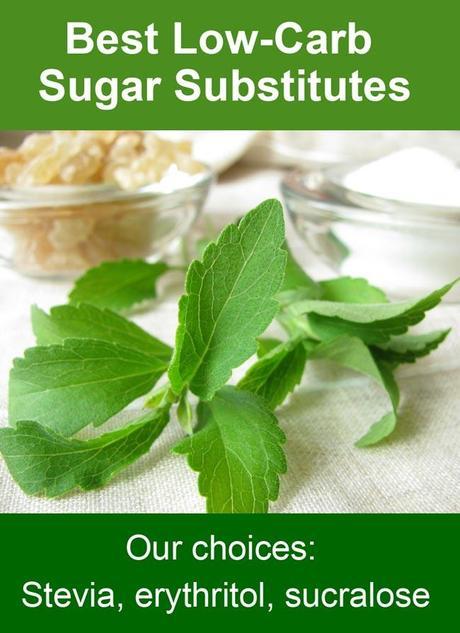
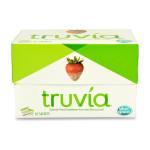
Truvia Sweetener 60 Sachets of 1.5g
£3.20 £3.20Around: $5.35 | €3.86
Paying in USD or EUR

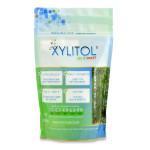
Xylitol – 250g
£5.25 £5.25Around: $8.79 | €6.33
Paying in USD or EUR

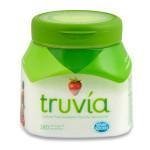
Truvia Sweetener 270g
£5.99 £5.99Around: $10.02 | €7.22
Paying in USD or EUR

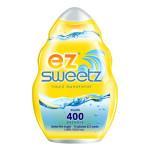
Liquid sucralose – 400 servings
£9.99 £9.99Around: $16.72 | €12.04
Paying in USD or EUR


Posted on 13 April 2014 by nutrialign. Diet tips and aids, Low Carb Cooking Basics

